Going Bust: A study of English football clubs and administration
Countless English football clubs are going out of business every season. The globe's foremost footballing industry is finally confronting its failures, but it's a painful process for many.
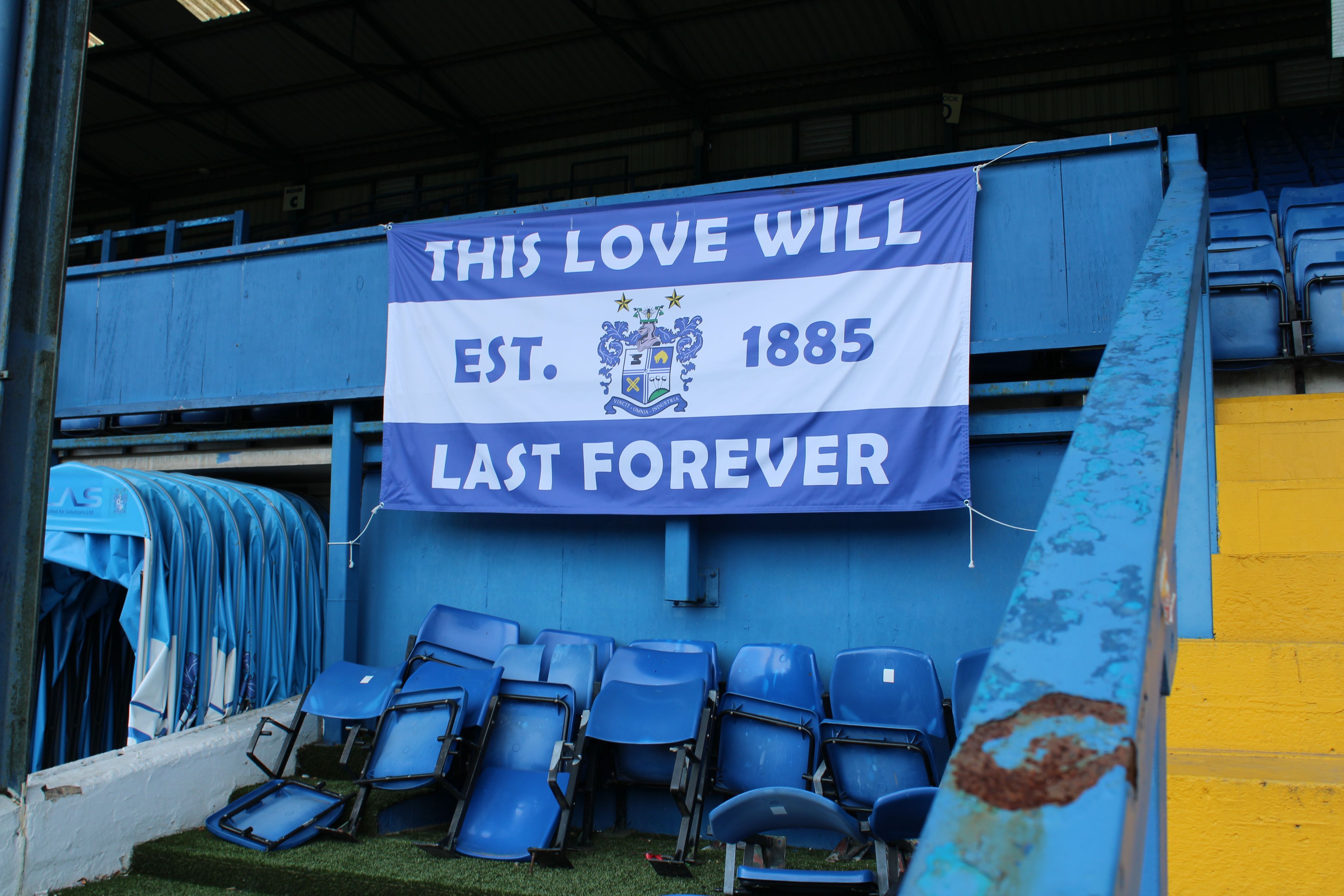
Bury has its football club back.
It has taken four years, two votes and countless social media spats since being expelled from the Football League to get here, but the Lancashire town can properly start afresh.
That means playing at Gigg Lane again under the Bury Football Club name and badge, with residents ready to throw their weight behind the team.
Unfortunately, it has come at the expense of some key years in the town’s history.
Football has not been played here since 2019, with phoenix club Bury AFC – run by the Shakers Community Society – playing at the closest available ground in Radcliffe, three miles closer to central Manchester.
In the meantime, the Bury FC Supporters’ Society (BFCSS) were determined to resurrect football only if it was true to the old club.
They waited for the chance to buy Gigg Lane from the club’s administrators in a deal that also included intellectual property associated with the old Bury FC.
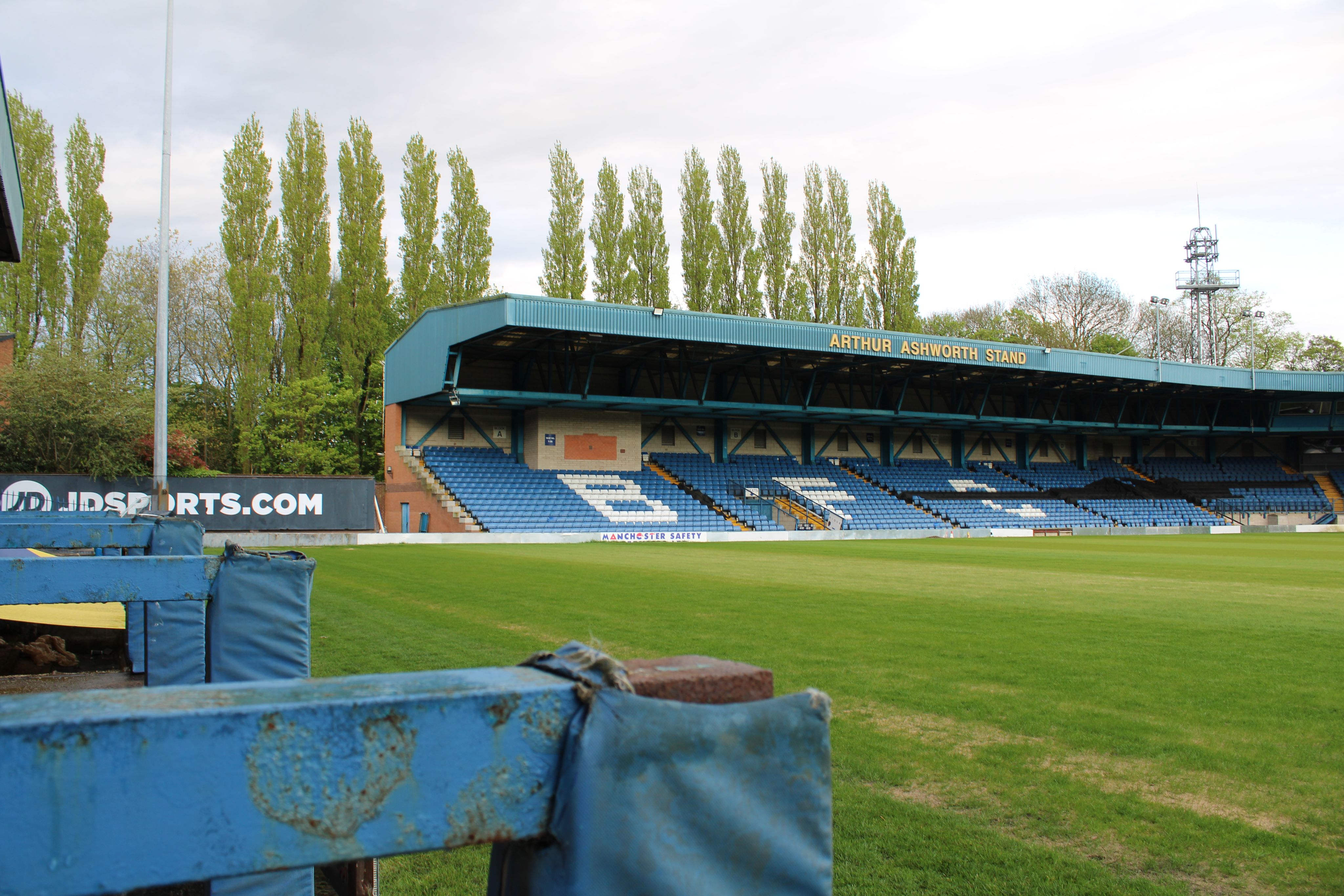
In effect, then, there have been two clubs running; one with a stadium but no team, and one with a team but no stadium.
A merger was always the logical solution but failed in October 2022, when Shakers Community Society and BFCSS members both voted in favour, but the BFCSS failed to reach the two-thirds threshold required.
Online conflicts cited fears about Bury AFC having little intention to reclaim Bury FC’s history, with debates spilling over into a period of public protests, during which a 12-year-old girl was struck with a flare at a Bury AFC game.
“It's a little bit like a grieving process when you lose a friend or a family member and that's how some people have treated it,” said Marcel de Matas, chair of Bury AFC’s football board.
“From our point of view, everybody responds to stressful situations and grief differently.
“But at the end of the day, there is no room for the extreme responses that some people gave; the threats of violence, the trolling on social media.”
History is cyclical, though, considering Bury FC was originally formed as a merger between two clubs in 1885.
One of the earliest English sides to go fully professional, the Shakers’ glory days came with FA Cup silverware in 1900 and 1903, before another peak in the 1920s.
Bury were a mainstay of the English Football League (EFL) until their expulsion in 2019, an event that reflected dismally on the ownership of Steven Dale and predecessor Stewart Day.
When the club was forced to fold, it wiped part of the local economy off the map – including jobs at the club.
“I’ve done 22 years of PA announcing on a Saturday afternoon,” said Brian White.
“I’ve [now] had four years of going shopping with my wife and I don't want to be doing that no more. I've changed her, she's coming down here and she'll be having a few drinks and enjoying herself.”
Thomas Pickup, a director of Bury FC Supporters’ Society, said: “When we came in here, we opened the doors back in February 2022, the pitch was a disaster.”
“The toilets were smashed in. All the rooms have been smashed by vandals. There was pigeon poo everywhere.
“It didn't look anything like this and it's thanks to loads of people who've come along. But it needed Bury FC, so I'm just so happy that [the merger] has happened.”
The successful vote, announced on a balmy Friday night at Gigg Lane, resulted from tireless volunteer efforts.
Both the BFCSS and Shakers Community Society appealed strongly for a ‘yes’ vote, making social media a much healthier place and easing a few damaging rifts.
“I just can't wait to go with my family again, it's been it's been too long,” said Pickup.
“I think the fans will be so happy. Just to see football, sitting up here in your old seat, watching football, complaining, cheering, going home and then chatting about it all week. That's what we've missed.”
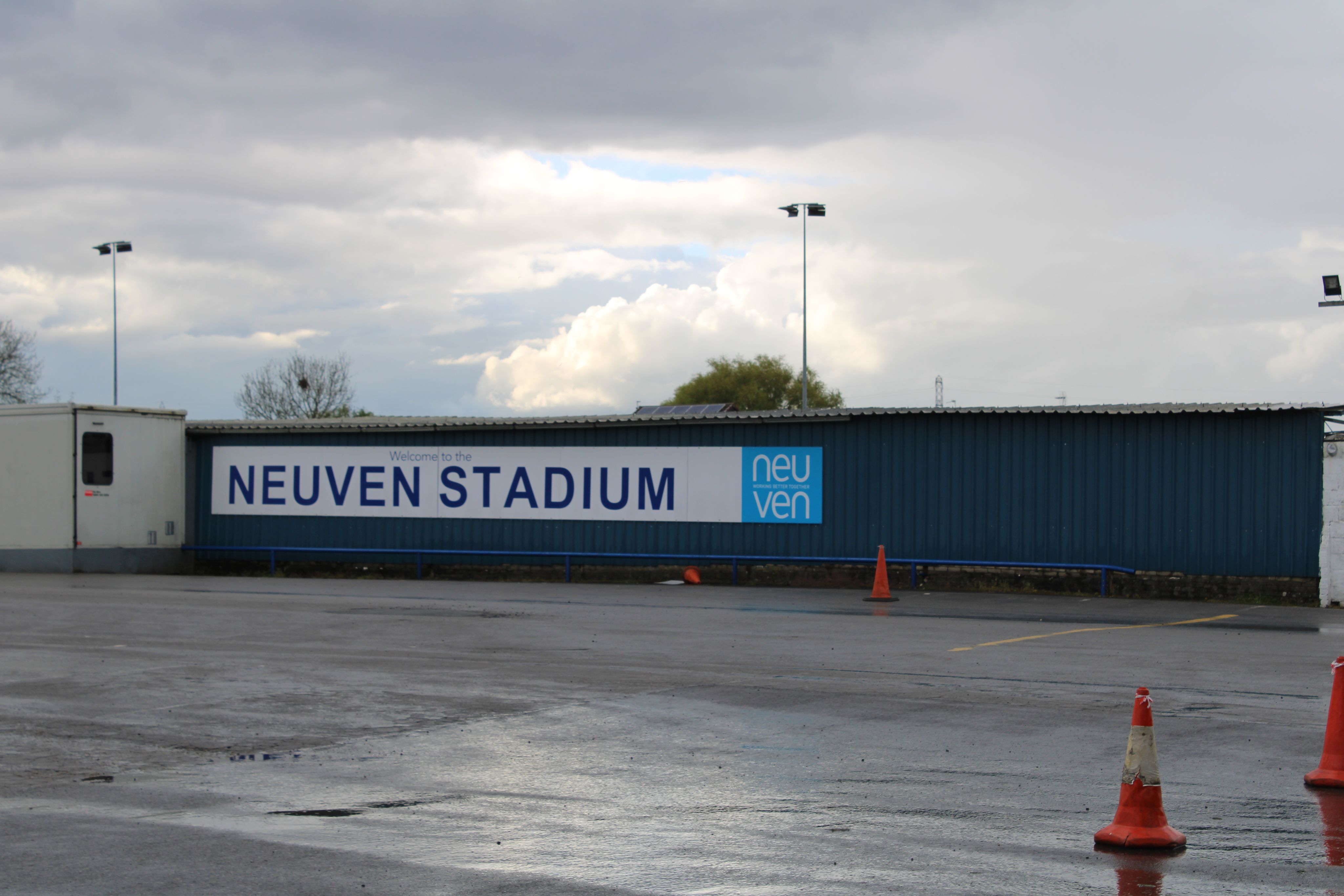
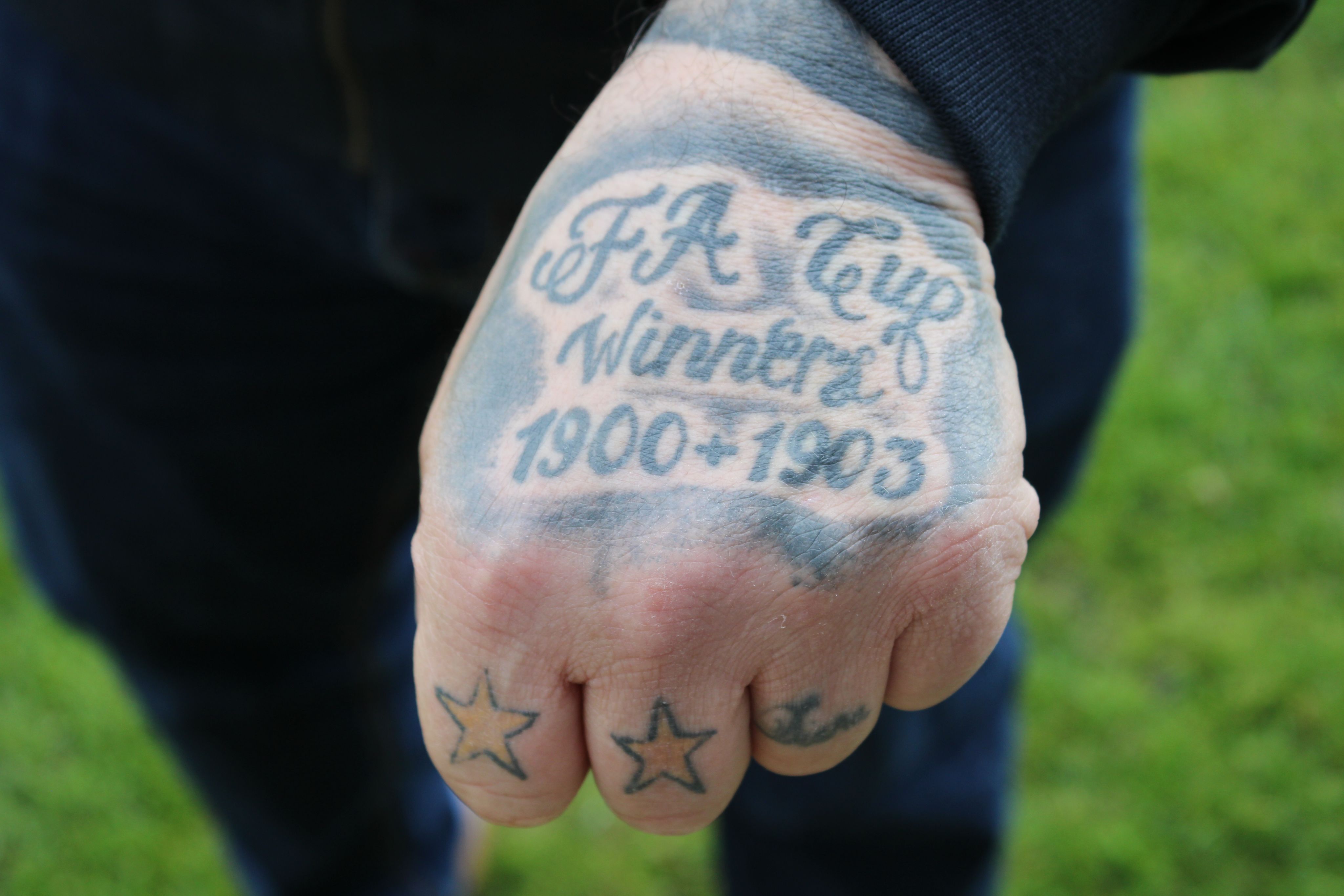
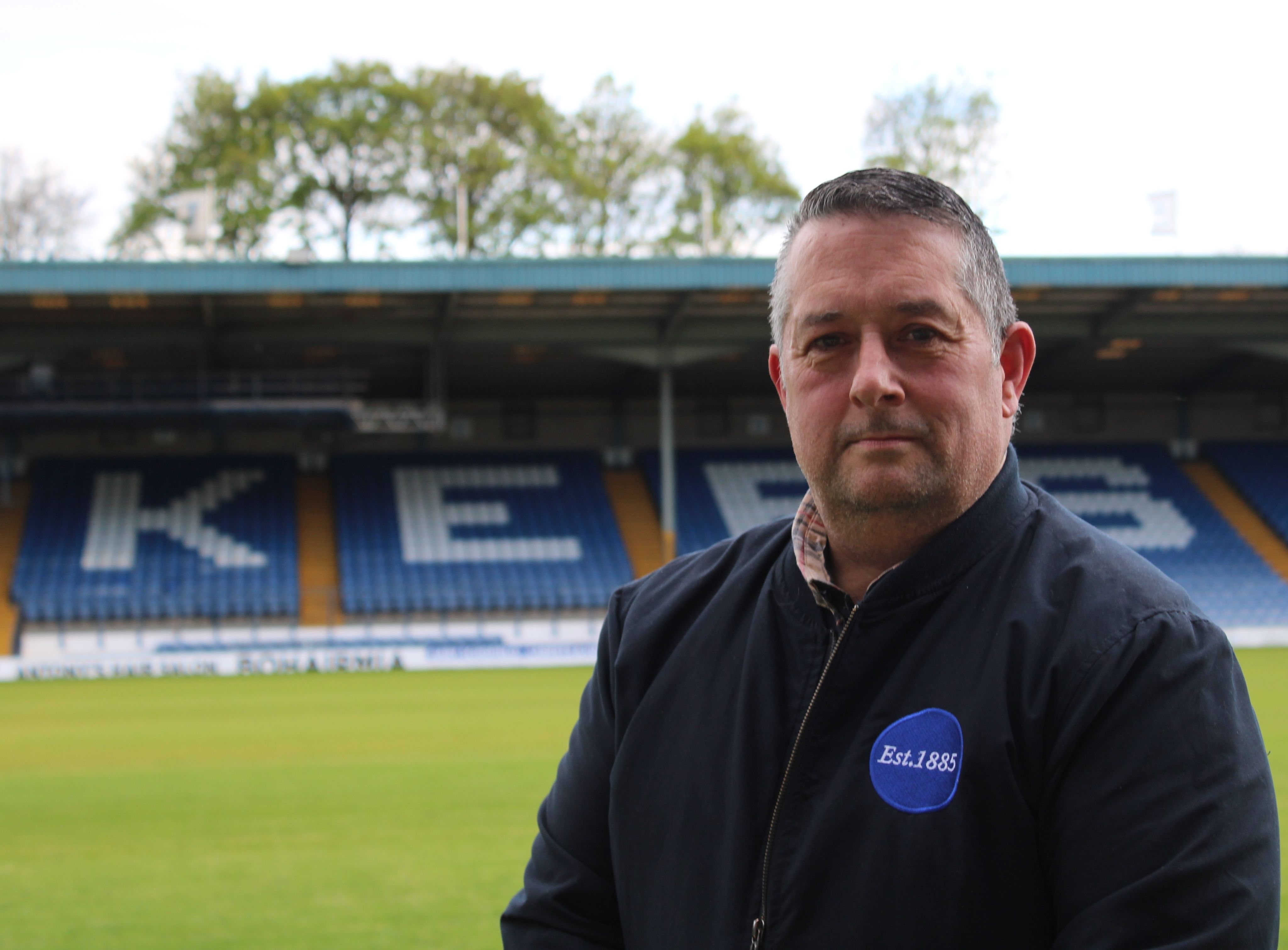
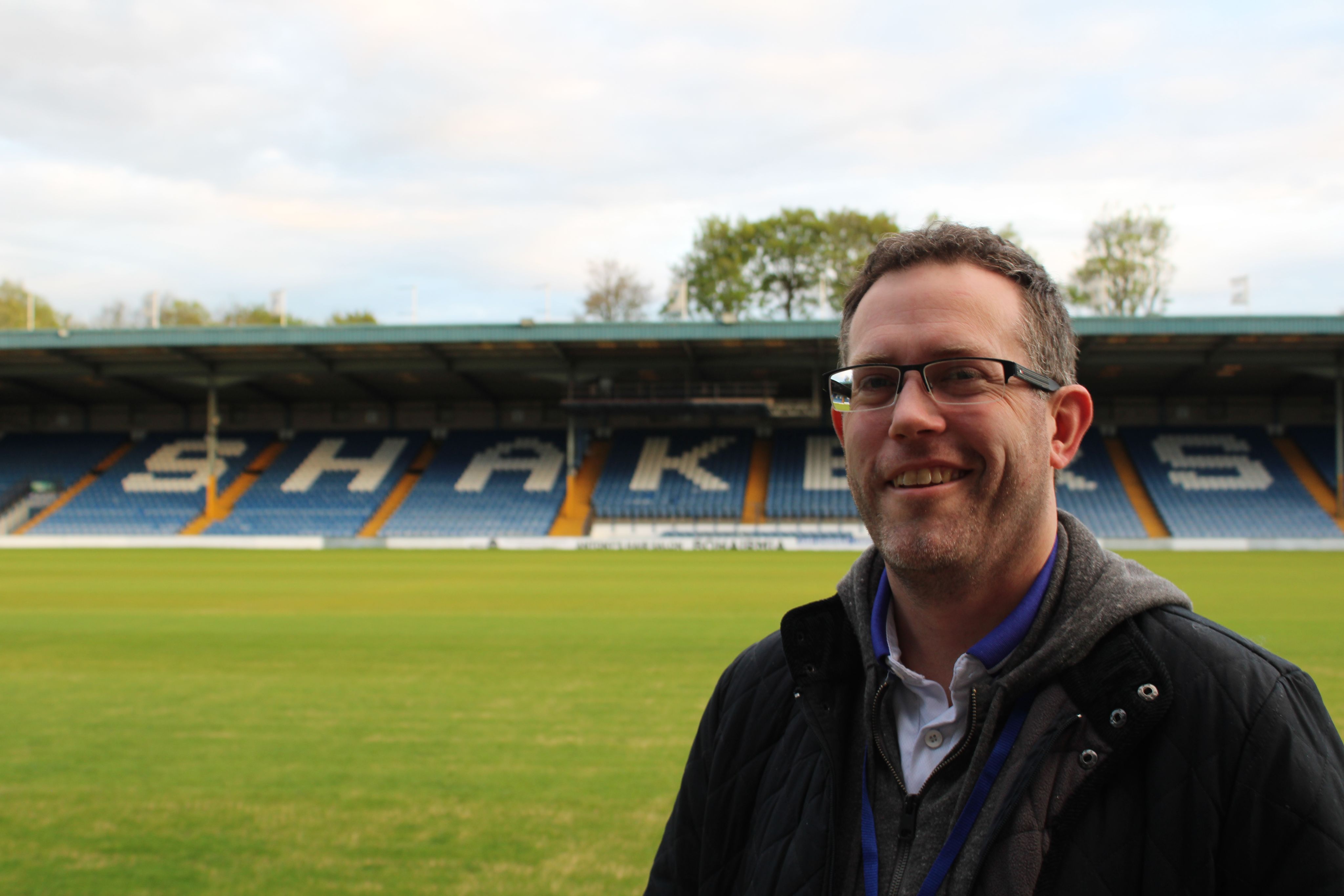
Unfortunately, Bury’s case is not unique.
With Utilita’s Price to Play Report in 2022 reporting that 2,600 grassroots clubs folded in the post-Covid-19 economy, and a further 6,000 were at threat, you realise the fragility of English football.
In professional football, Macclesfield Town FC followed Bury down the financial plughole in 2020, with the Cheshire side handed a winding-up order after failing to pay players for much of the 2019-20 season.
Critically, Macclesfield never entered administration, preventing new owners being found, which other fan groups say is a mistake.
“When our club went into administration, the debt disappeared,” said Ian Bridge, secretary of the Bolton Wanderers FC Supporters’ Trust (BWFCST).
“You go to the football creditors arrangement and you've got to pay your football creditors, but you get the exit arrangement with the EFL where you can pay your guarantors 25 pence in the pound immediately or 35 pence in the pound over three years.”
“We're not deluded. We're not stupid. What we are is the voice of the fans and that’s what we can do. We've heard the term mentioned; critical friend.”
Administration is far from a panacea, with all the problems that led up to it still very much present.
“We got to within about 24 hours of the administrators of the football club saying, ‘I'm going to wind the club up’,” said Bridge.
“Eventually, the deal was done, [new owners] Football Ventures came in at the beginning of September 2019 and bought a severely distressed football club.
“We managed to pull it around and got promoted, believe it or not, and things have gone much, much better.”
This approximates the Trotters’ story; another storied club ravaged by mismanagement and misfortune in the boardroom but saved with the help of fans.
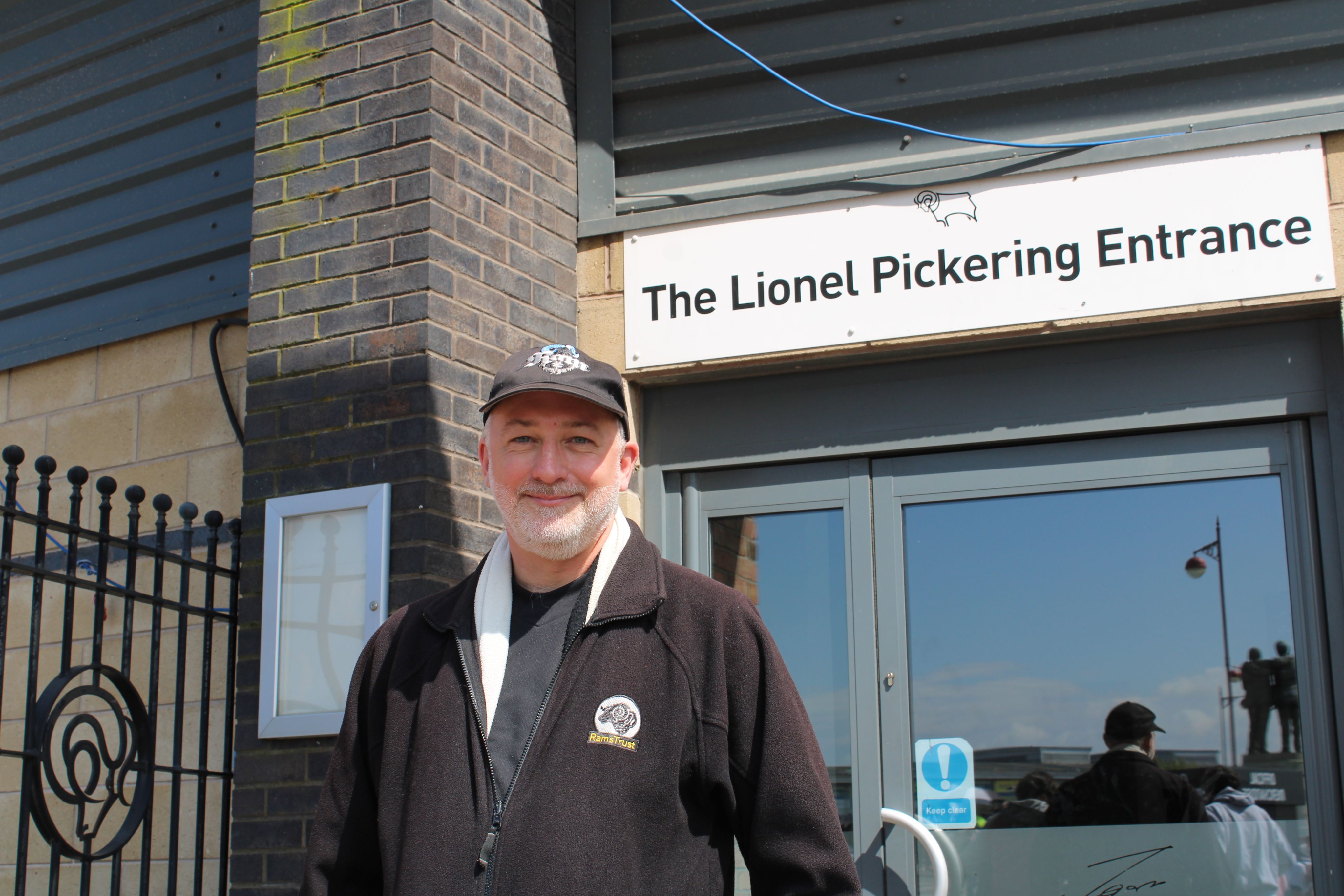
Jim Wheeler, member of the Rams Trust, in front of the Lionel Pickering entrance that celebrates Derby County's iconic chairman from 1991 to 2003
Jim Wheeler, member of the Rams Trust, in front of the Lionel Pickering entrance that celebrates Derby County's iconic chairman from 1991 to 2003
Similarly, Jim Wheeler, former chairman of the Rams Trust, led the charge to protect football at Derby County during the club’s scarring spell in administration from 2020 to 2022.
For him, it was a time when empathy was key.
“It was horrible. Particularly in the role that I had, [the fans] were all contacting me and going, ‘Are we gonna be safe?’
“I literally would get five, ten messages a day going, ‘Jim, please tell me we're gonna be alright,’ to the extent that I had to consider my response. I couldn't say, ‘No, I'm really worried too.’
“Some of those supporters were saying, ‘Derby County is my life, it's all I've ever done. What am I going to do if there's no Derby anymore?’"
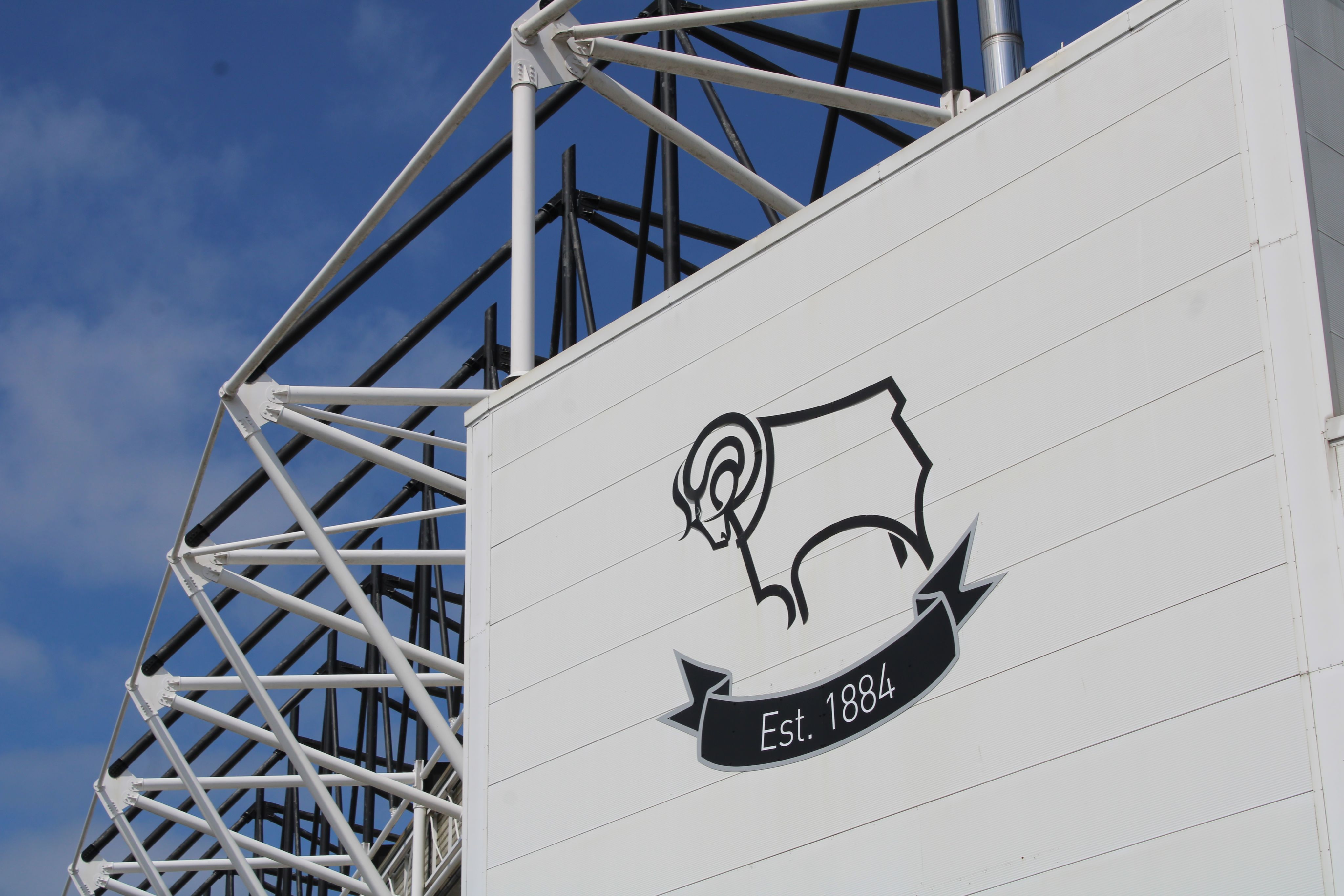
Derby turned it around, with local businessman David Clowes taking over and starting a run that ended on the verge of the League One play-offs this season, but the scars were deep during a year of uncertainty.
“There were people who were, it seemed to me, on the verge of suicide last year when they saw what was happening to the club,” said Wheeler.
“This season is just a massive relief. People keep saying, ‘Isn't it great just to be able to go and moan about the players and worry about [things] on the pitch and not worry about [things] off the pitch.’”
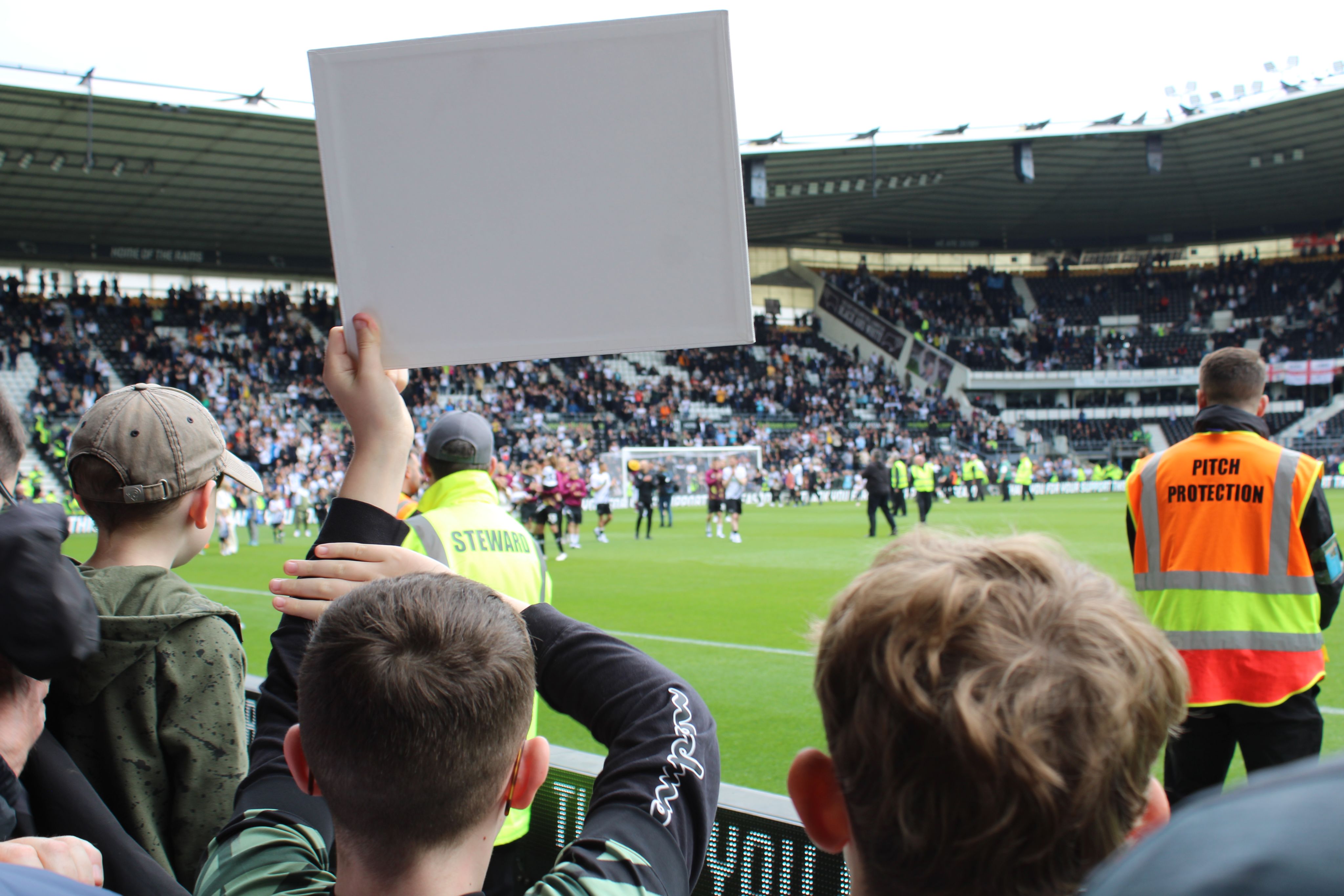
Why does English football have such abundant issues?
“If you want a one-word answer, it's the short-term-ism of football,” said Christina Philippou, co-author of the government-commissioned research paper ‘Assessing the Financial Sustainability of Football’.
“Bad cash management, lack of proper professionalism at clubs, the back-office staff and lack of understanding of how that goes, and lack of interest for it.
“They just want trophies and they don't care about the long-term sustainability. That is the major problem in football.”
While the football industry has always been fiscally liberal, a boom-or-bust culture has proliferated since the formation of the Premier League.
Driving a dramatic upturn in wages as sponsorships and broadcast deals smashed global records, the PL has turbocharged England to become the world’s most lucrative footballing ecosystem.
This has come at a cost, with record numbers of clubs going bust.
“There's a whole list of clubs which are in the red of the red-amber-green [scale], who are going into administration next. Unfortunately, there's quite a big list,” says Philippou.
“Wages not being paid are a good indicator that something's not going well.
“If you're consistently spending not just slightly over what you should be, but double your revenue just on player wages, it's no surprise that things are looking precarious, right?”
All this prompts the question of what English football’s priority is – success or sustainability.
As a result of Philippou’s report, the government has signalled its intentions to introduce an independent regulator to football, operating as an industry watchdog like Ofcom, Ofsted, or the Care Quality Commission.
These proposals have received mixed reactions within football.
Bridge and Wheeler are heavily in favour, while Philippou thinks “there are some benefits about stronger regulation.”
“I think it's a really tough job that [the government] have,” added Philippou.
“They have to pick who they want to please and ultimately, they're trying to protect the fans. The fans want sugar daddies to be spending shed loads so they win on the pitch, but when the club goes under, they're in dire straits.
“So, which fans are you protecting, and do fans understand that they're being protected?
“Not necessarily, but I do agree that that the current system cannot continue and end well long-term.”
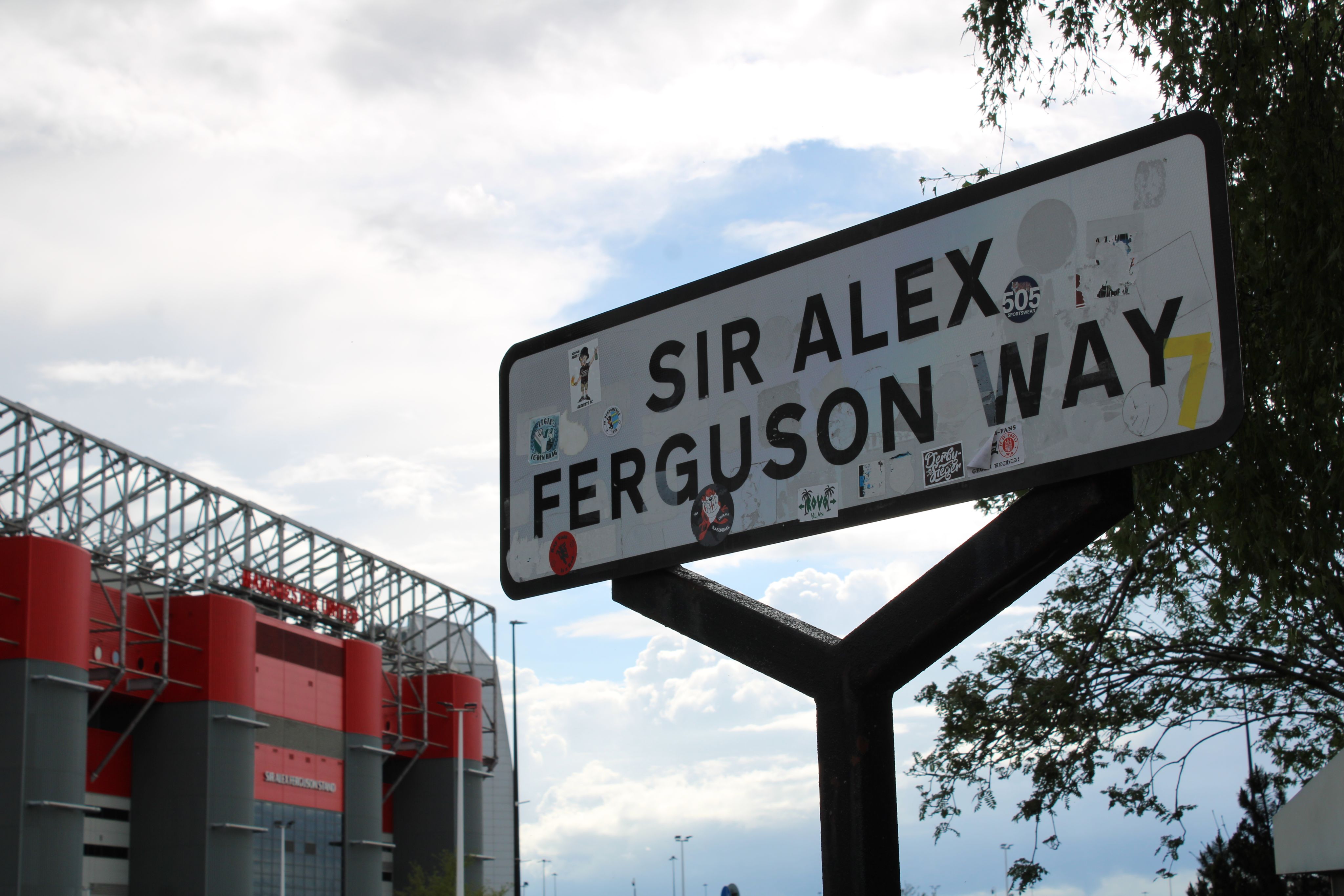
Manchester United's Old Trafford is the largest stadium in English club football and a symbol of the financial power of the Premier League.
Manchester United's Old Trafford is the largest stadium in English club football and a symbol of the financial power of the Premier League.
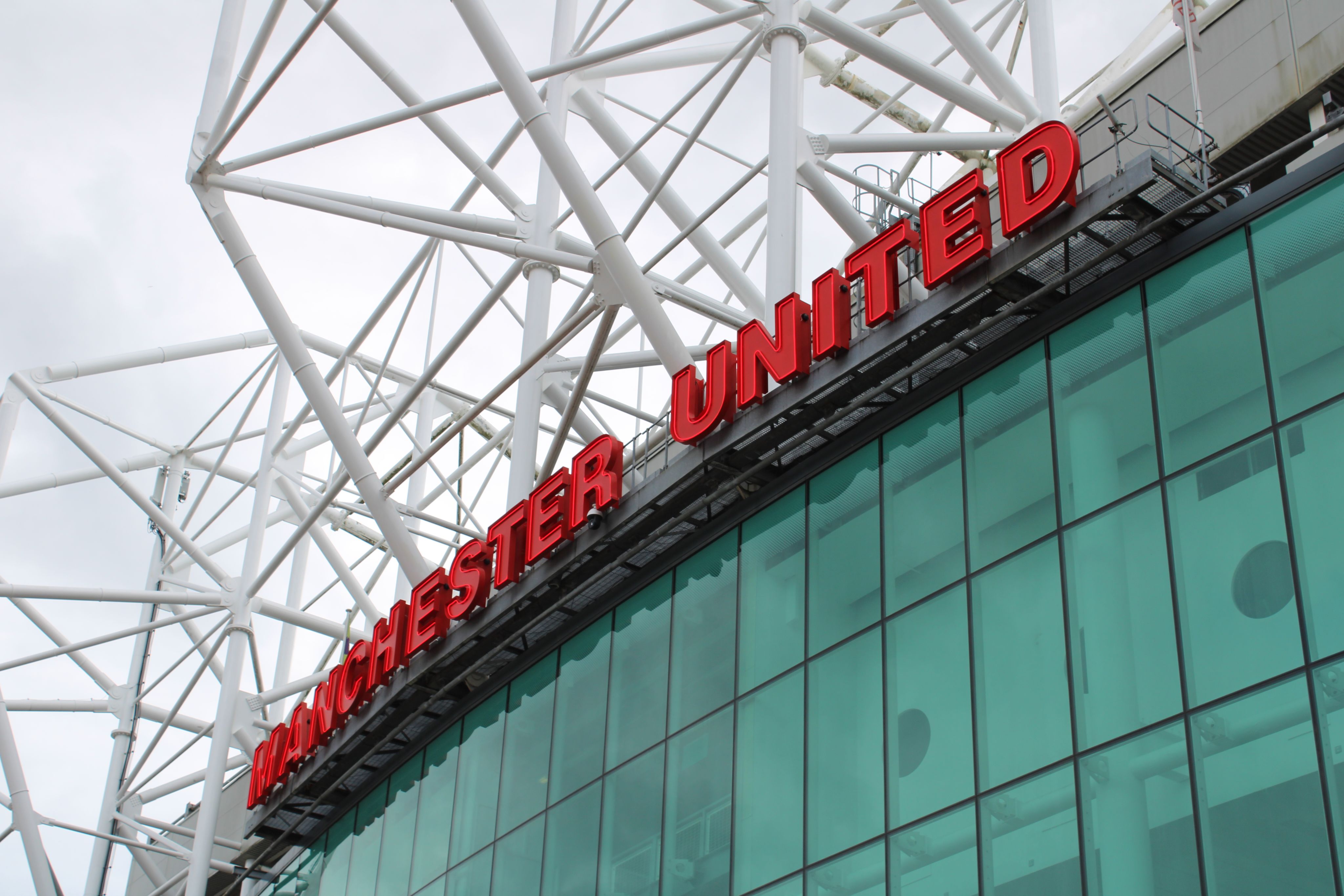
Manchester United were named the richest football club in the world in Deloitte's Football Money League in 2017, while in 2023 they were fourth in the men's club list and second in the inaugural women's club list.
Manchester United were named the richest football club in the world in Deloitte's Football Money League in 2017, while in 2023 they were fourth in the men's club list and second in the inaugural women's club list.
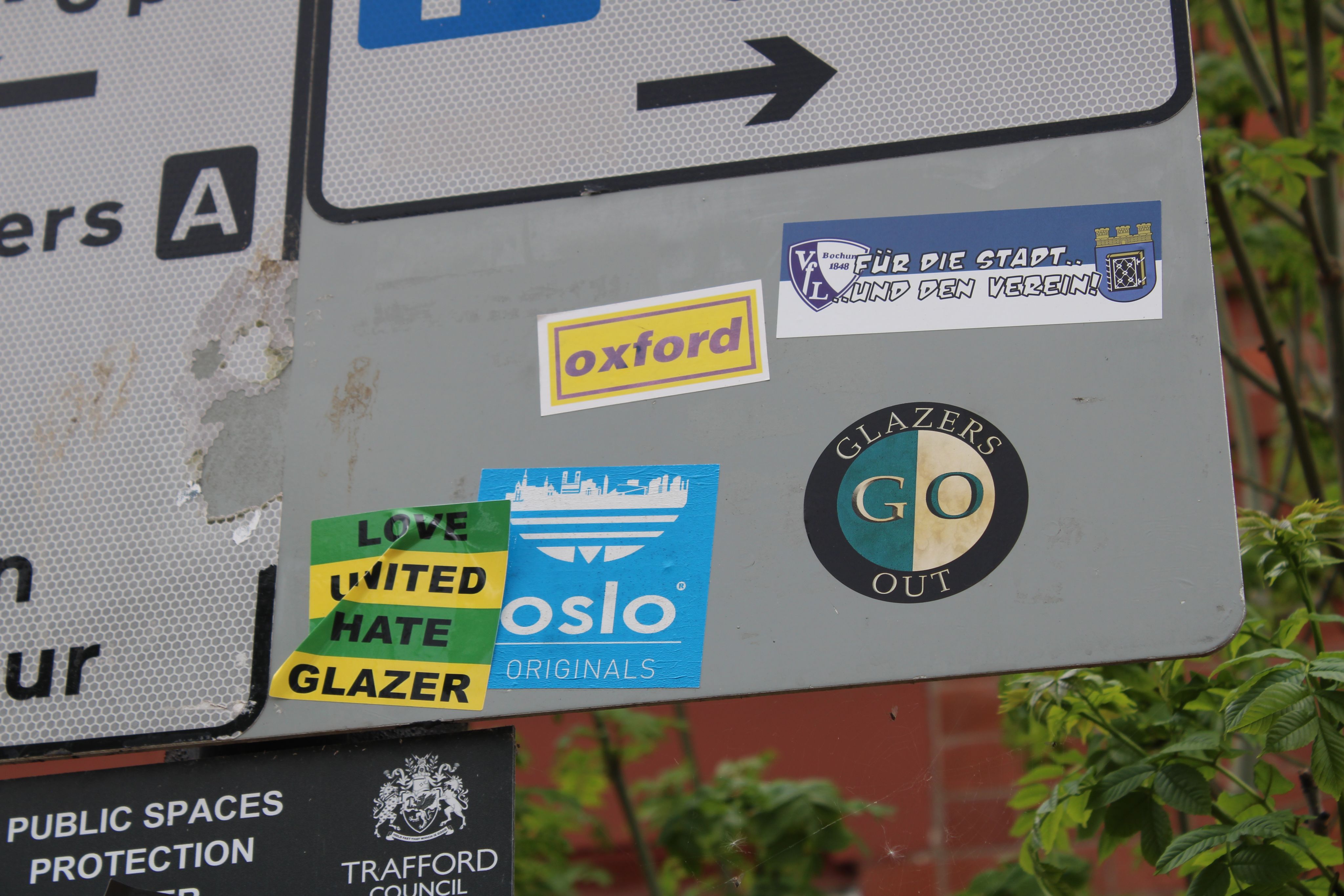
Supporters have regularly displayed their opposition to the Glazer family's ownership of United, despite financial success.
Supporters have regularly displayed their opposition to the Glazer family's ownership of United, despite financial success.
Sustainability is the crux of the matter.
When clubs fail, their communities do too, and that is why fan action like post-expulsion pub gatherings in Bury is important to ensure livelihoods are protected.
Many view this as the lifeblood of non-league, where volunteers are the beating heart and the financial plug could be pulled at a moment’s notice.
“During Covid, you've got no football, no fans and no revenue,” said Kelly Waters, chairman and first-team manager at AFC Whyteleafe.
Cradled in the Surrey hills, Whyteleafe are a phoenix club arising from Whyteleafe FC, who spent several years in the Isthmian League before chairman Mark Coote was forced to give up their Church Road ground.
The site was bought at auction by Singapore-based company iRama, who promote themselves as being ‘powered by Ian Rush’, and despite fears the company would build housing there, the lease was eventually handed to Waters – almost by accident.
“When I found the agent, they said it was too late. A few months went by and I was looking for houses around this area, so I popped in to see this stadium I’ve missed out on out of curiosity, and the people who run it were in the car park,” said Waters.
“I chatted with them, they said ‘We have no first-team football here’ and I was like, ‘Well I’ll rent it.’ We talked about the price and the hours, committing for four years. Then we shook hands and did the deal in the car park.”
Waters quickly secured a place in the twelfth tier of English football – courtesy of his previous managerial role at Balham B – and gathered a squad and kits three weeks before the start of the season.
A shaky start gave way to promotion the following summer, and Leafe have now taken on 29 youth teams and a women’s first team.
If that sounds like a lot of work for one man over two years, then it is, but Waters is highly committed and has the funds to support the club for the foreseeable future.
It’s a perilous business model, which even he admits as he dodges a bus en route to the local café and jokes that if he was struck down, the club could go bust.
That’s why alternative models exist.
“Sustainability has to be the aim,” says Rob Usher, chairman of fan-owned AFC Rushden and Diamonds.
“I would never want us to come away from the fan-owned model. For me, [the alternative] is built on a false economy.
“We saw that at [previous club] Rushden and Diamonds FC. If it comes to a time when those guys don't want to keep putting money in because there's no return on it, they've got two choices that they either [sell it] or give it back to the supporters, and they won't be able to sustain that.”
Rushden was sold a dream before, with the Northamptonshire town almost reaching the Championship under Dr Martens magnate Max Griggs in the 2000s, but falling hard when Griggs pulled out before going bust in 2011.
"Are we ever going to get to the Football League? No, but we might have a cup run every now and then get a first-round match on the BBC. Once you start having that impact, and you start building that profile, that benefits all the local businesses in
the community as well."
Ever since, fan-owned AFC have put the community first, with latest efforts concentrating on securing a new stadium.
“I don't want 40 grand out of the club and Alex [Raspin, vice-chairman] doesn’t want 40 grand out of the club. We want that money going back into the club,” said Usher.
“That money is going to provide so many opportunities. That 40 grand could employ four unemployed people to take part-time jobs at the stadium for 10 grand a year apiece.
“Rushden is an incredibly impoverished area. We thought, what if we can take people out of unemployment through the football club? That would be phenomenal.”
Following the blueprints of other fan-owned clubs including AFC Wimbledon, the likes of Rushden and Diamonds and Bury will prioritise sustainability over a rapid ascent back to their glory days.
That seems a sensible step and one that chimes with Philippou’s advice.
Fan ownership is not a prerequisite to success, though, and many ownership structures can be conducive to a harmonious football club.
What appears to run through every case for optimism is deep-set passion; fans who care and simply want football to survive in their communities.
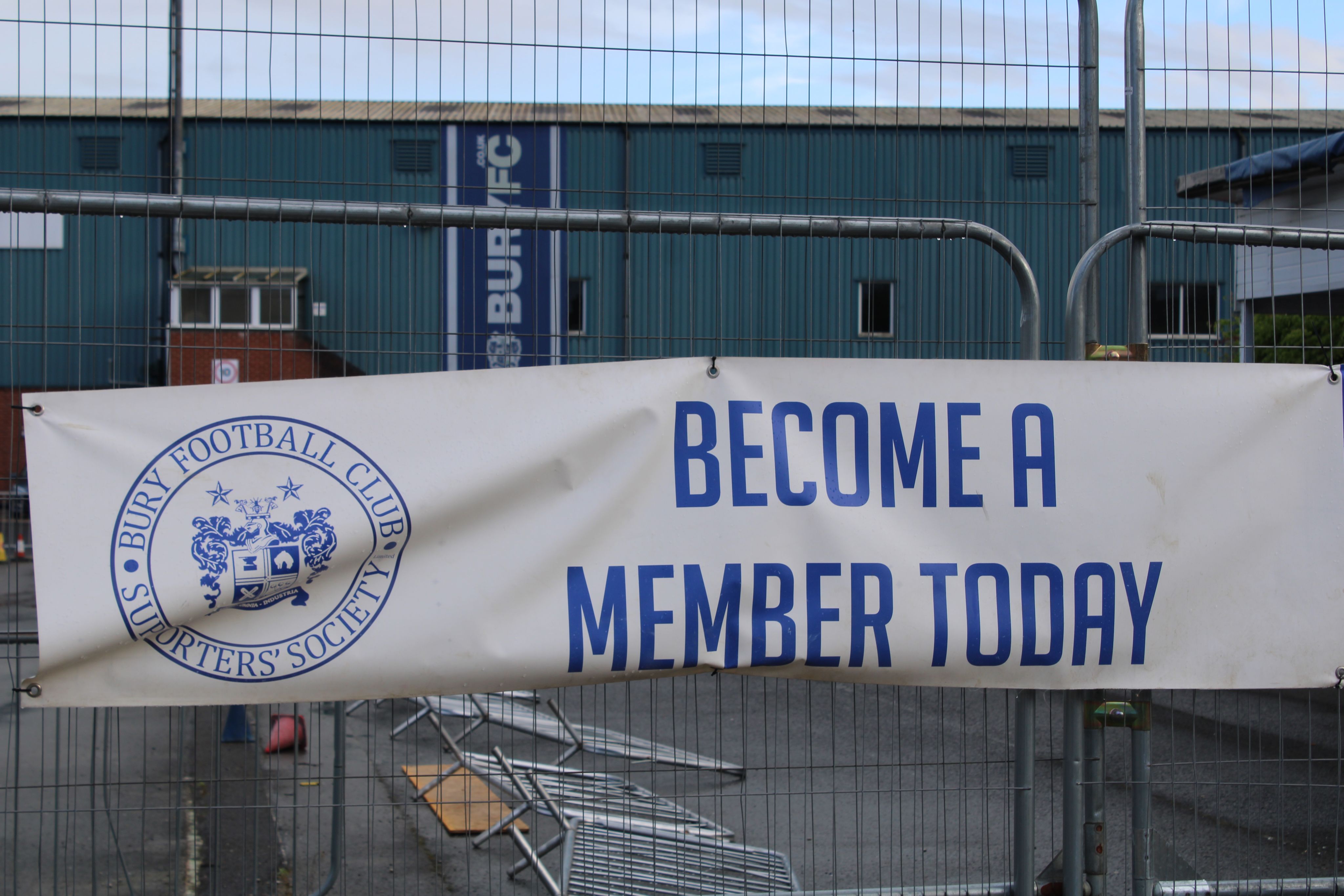
"I remember two of my friends standing at the gates and getting a bucket. People were coming out with bundles of 20 pound notes, putting them in my hand. Things like that really bring home to you how much this club means to the fans."
Lois Brough on 2019 efforts to raise money for Notts County staff.
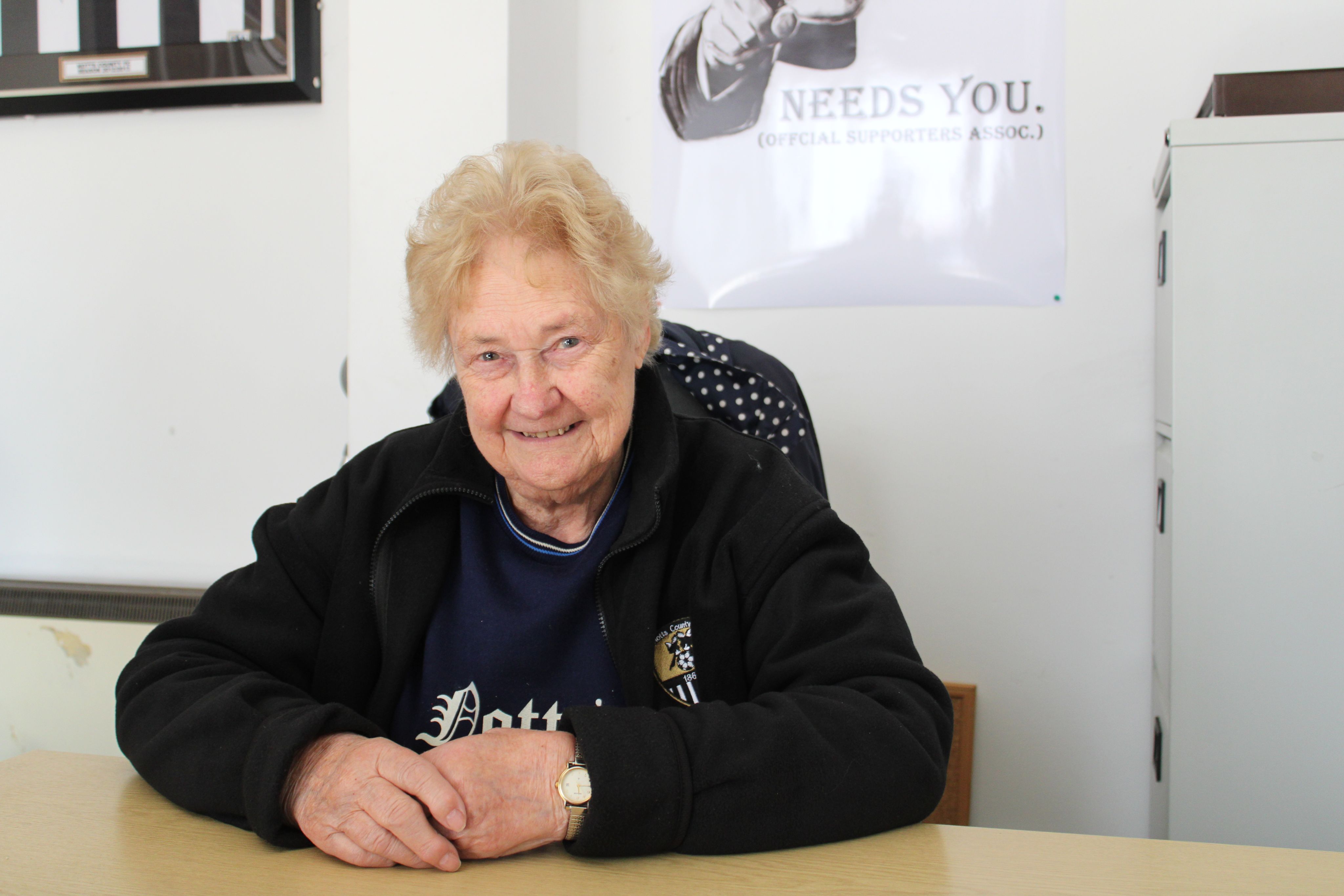
Few demonstrate this better than 91-year-old Lois Brough, who staffs the Notts County Official Supporters' Association office on every home matchday, providing a familiar face to the club’s 15,000-plus fans.
She’s seen the ups of Jimmy Sirrel and Neil Warnock’s spells in charge, as well as the downs of administration in 2002 and returning to the brink of liquidation in 2019.
“You couldn't find more loyal supporters than Notts County fans. We’ve had so many ups and downs and to me as secretary, it’s wonderful to see how the fans come back,” said Brough.
And what does Notts County mean to her?
“Everything, everything, and it always will. I met my friends down here and I call it home.
“I've never been disappointed; if you lose a match, you pick yourself up and carry on to the next one.”
As County dragged themselves to the brink of returning to the Football League that afternoon, coming back from a 2-0 deficit to seal victory with a 119th-minute winning goal, Brough’s words were encapsulated there.
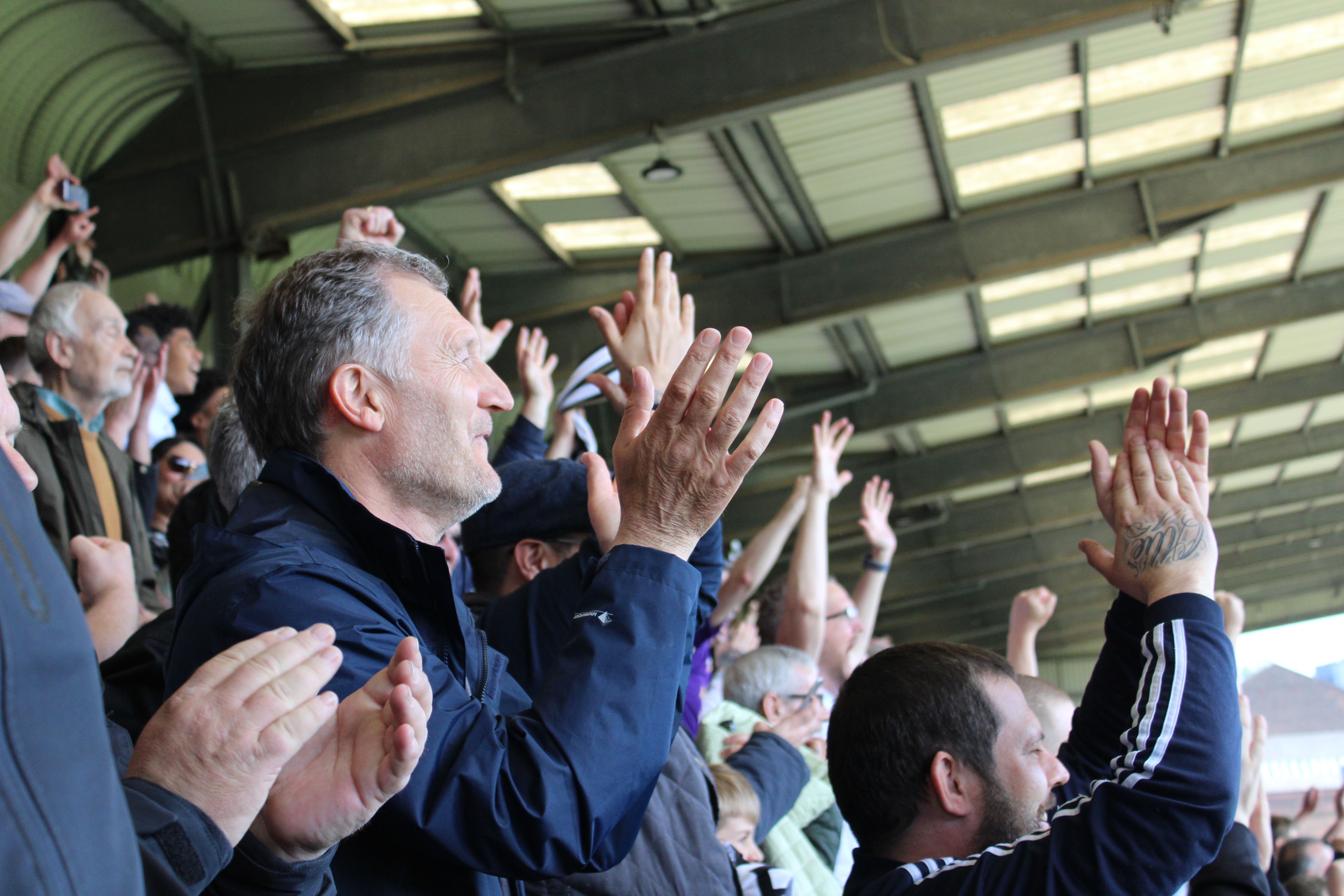
Life fills football stadiums, and football gives back.
For so many, there is great pain associated with their chosen sport when it should not have to be. For a wide array of reasons, football has been used as a plaything, and its clubs as hot potatoes.
Fans of so many clubs will hope that such a time is over.
For Bury, it is – but to avoid another Bury, football’s next custodians must have fans’ best interests at heart.

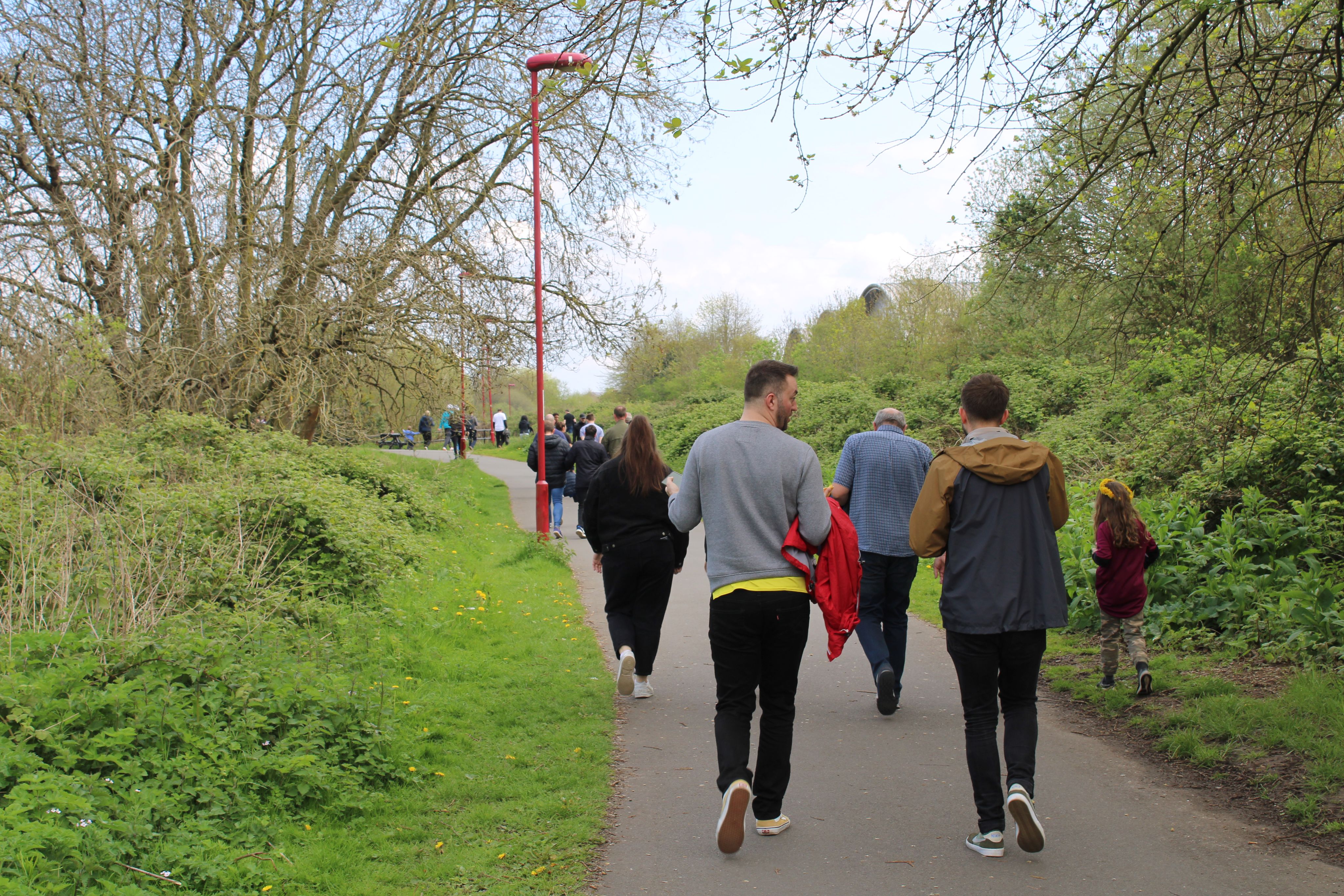
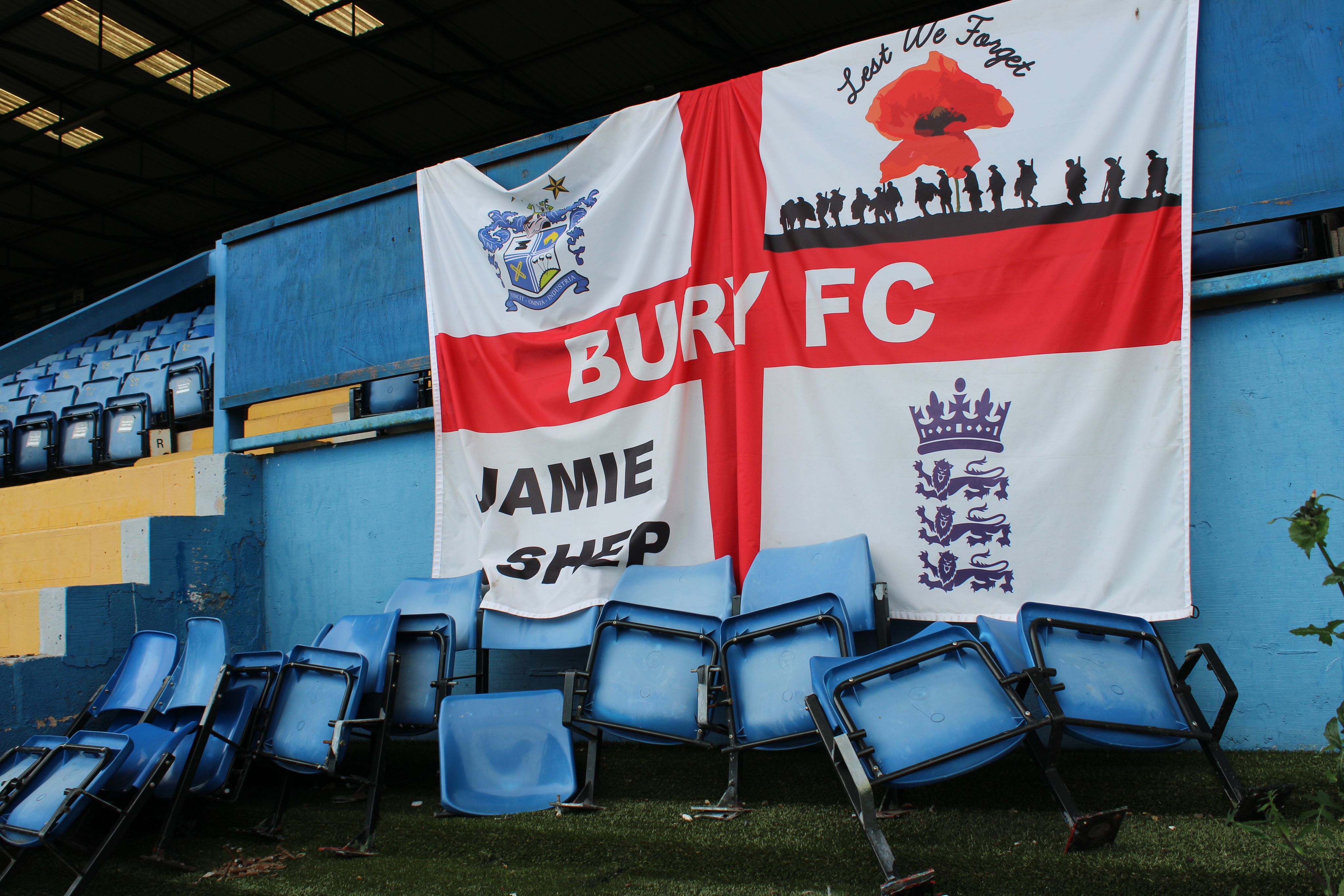

Notts County fans celebrate by storming the Meaow Lane pitch after their play-off semi-final win.
Notts County fans celebrate by storming the Meaow Lane pitch after their play-off semi-final win.

Derby County fans take the scenic walk to Pride Park Stadium.
Derby County fans take the scenic walk to Pride Park Stadium.

Bury FC's Gigg Lane will finally play host to football again when a North West Superstars side takes on a Rangers XI in the Lee Rigby Memorial Cup on Saturday, June 24.
Bury FC's Gigg Lane will finally play host to football again when a North West Superstars side takes on a Rangers XI in the Lee Rigby Memorial Cup on Saturday, June 24.